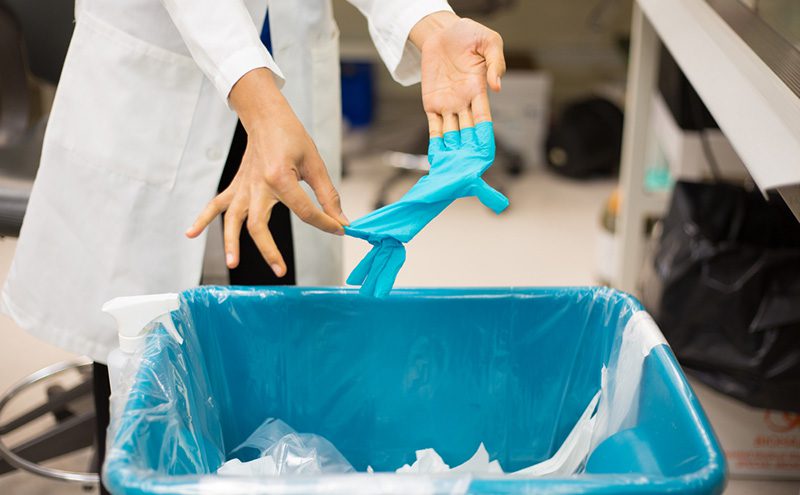
All those who collect, transport, store treat and dispose of healthcare waste are being encouraged to respond to a consultation on its storage and treatment from Scotland’s environmental regulator.
The consultation opened on Friday 4 March and will run for eight weeks until 29 April 2022.
The Scottish Environment Protection Agency’s (SEPA) proposed guidance, ‘Storage and treatment of healthcare waste: Appropriate measures and supporting guidance’, brings healthcare waste guidance in Scotland together into one place, says the agency.
“It is designed to support operators to understand and meet their compliance obligations, go beyond compliance standards, and ensure waste is managed in way that minimises pollution of the environment and harm to human health. Additionally, as many operators work across the UK, there is a need to align with the rest of the UK where appropriate to do so.”
Key changes
SEPA proposes that the guidance is used by operators who store or treat healthcare waste, to demonstrate compliance with the objectives of their environmental authorisation, to prevent, or where that is not practicable, minimise emissions to the environment.
Authorisation reviews
Once the final guidance is published, SEPA intends to undertake a series of authorisation reviews, working with operators, to identify and implement appropriate measures as necessary. This will be undertaken through agreed action plans and variations if required.
Sites affected include installations with Pollution Prevention and Control (PPC) permits and facilities with Waste Management Licences (WML) that are authorised to store, treat and/or transfer healthcare waste. SEPA’s initial focus will be on sites primarily dealing with healthcare waste. Over time this will extend to sites that deal with healthcare waste as part of a wider mixed waste portfolio. For example, waste transfer stations dealing with multiple waste streams.
The intention is for all existing authorisations to reflect relevant appropriate measures by the summer of 2025. For new sites, appropriate measures must be in place before operations start.
Pre-acceptance audits
A limited number of PPC installations and WML facilities regulated by SEPA currently have pre-acceptance requirements in their environmental authorisations. SEPA intends to apply these requirements, including pre-acceptance audit requirements, to all authorised PPC and WML healthcare waste facilities to improve consistency, work towards a level playing field and drive-up standards for waste segregation at source.
This means that hospitals, dentists, care homes, veterinary practices and other producers of healthcare waste will have to make sure they rigorously segregate their wastes before they are collected. They will have to check and confirm through an audit that they are doing this on an ongoing basis. Details of the kinds of wastes included, and how they should be separated, are described in the guidance.
Standard storage times
Standard storage times are proposed for different types of healthcare waste to improve consistency, promote best practice and ensure effective and efficient management of waste.
Where the use of standardised storage times is not appropriate, SEPA will discuss alternatives with operators and aim to find a practicable solution.
Waste management exemptions
SEPA is proposing that those who operate under waste exemptions for the use of autoclaves to sterilise waste, including special waste (paragraph 28) and secure storage of medical, nursing or veterinary wastes (paragraph 39) follow applicable sections of the guidance.
This may affect waste producers treating waste where it is produced, pharmacies, and premises of a medical, nursing or veterinary practice or needle exchange facilities.
Shona McConnell, SEPA Senior Manager, Compliance and Beyond, said:
“Sustainable healthcare waste management is vital to protect communities, workers and our environment.
“Ensuring that the right healthcare waste goes to the right place for appropriate storage and treatment will mean it is treated effectively and efficiently. Our new guidance is designed to bring together all the information required so that is it clearer what is expected of those handling healthcare waste, and therefore easier for them to demonstrate they are compliant with their environmental authorisation.
“But we need to understand if those in the industry have concerns about our approach, or suggestions for how we go further, so we can ensure that the right support and guidance is available. So, I do encourage you to respond to our consultation by 29 April, so SEPA can make informed decisions on our next steps.
“If you have any questions about what this means for you and your business, please contact SEPA via nationalwaste@sepa.org.uk.”





